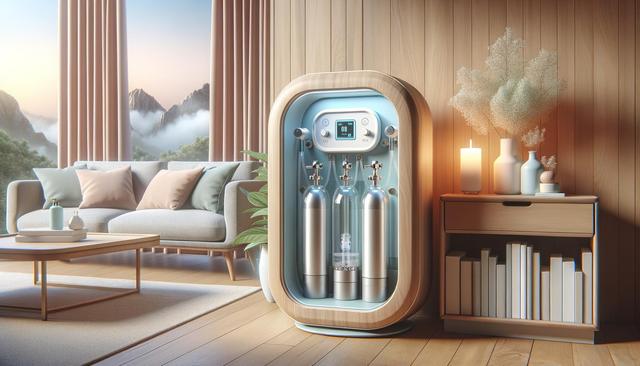What Is an Oxygen Concentrator?
An oxygen concentrator is a medical device designed to deliver concentrated oxygen to individuals with respiratory conditions that cause low blood oxygen levels. Unlike oxygen tanks that store a finite amount of oxygen, concentrators work by drawing in ambient air, filtering out nitrogen, and delivering purified oxygen through a nasal cannula or mask. This process allows for a continuous supply of oxygen, making it ideal for long-term use at home or while traveling. As respiratory support needs grow, especially among those with chronic obstructive pulmonary disease (COPD), asthma, or other lung conditions, these devices have become a practical and efficient solution for improving quality of life.
Modern oxygen concentrators come in two main types: stationary and portable. Stationary models are typically used at home and are known for their higher oxygen output, while portable oxygen concentrators are designed for ease of movement and travel. Both types support users by providing consistent oxygen delivery, helping them maintain better energy levels and overall wellness throughout the day.
Advancements in Breathing Support Technology
Recent innovations in oxygen concentrator technology have significantly enhanced their usability and performance. Today’s models are more compact, lighter, and quieter than earlier versions. Many incorporate smart features that allow users to monitor oxygen levels, battery life, and performance through digital displays or mobile apps. These advancements make it easier for users to manage their respiratory support independently and confidently.
Some of the notable improvements include:
- Longer battery life in portable units for extended use during travel
- Pulse dose and continuous flow settings for customized oxygen delivery
- Improved filtration systems for cleaner oxygen output
- Connectivity with health monitoring platforms for better care coordination
These upgrades reflect a growing focus on user comfort and convenience, positioning oxygen concentrators as a vital part of modern home healthcare solutions.
Benefits of Using an Oxygen Concentrator at Home
Using an oxygen concentrator at home can offer a range of physical and psychological benefits for individuals with chronic respiratory conditions. By ensuring a steady supply of oxygen, these devices help relieve symptoms such as shortness of breath, fatigue, and sleep disturbances. This can result in improved mobility, better sleep quality, and enhanced overall well-being.
Additional benefits of home oxygen concentrator use include:
- Reduction in hospital visits due to stabilized oxygen levels
- Greater independence in daily activities
- Improved exercise tolerance and stamina
- Flexible scheduling without reliance on oxygen delivery services
With consistent access to oxygen therapy, users often experience a noticeable improvement in their daily routines and lifestyle, allowing them to participate more actively in work, family life, and hobbies.
Portable Oxygen Concentrators: Breathing Support on the Go
For individuals who lead active lifestyles or require mobility, portable oxygen concentrators offer a practical solution. These devices are designed to be lightweight and compact, allowing users to carry them easily during travel, errands, or outdoor activities. Most models are approved for air travel, giving users the freedom to explore new destinations without compromising their breathing needs.
Key advantages of portable concentrators include:
- User-friendly controls and displays
- Rechargeable batteries with high capacity
- Discreet and quiet operation for public use
- Compatibility with car chargers and travel accessories
Whether used as a primary oxygen source or a supplement to a home unit, portable oxygen concentrators support better breathing wherever life takes you.
Is This the Future of Home Breathing Support?
As healthcare technology evolves, oxygen concentrators are becoming a cornerstone of home respiratory care. With the increasing demand for home-based medical solutions, these devices offer a reliable and efficient way to manage chronic respiratory conditions without frequent hospital visits. Their adaptability, from stationary setups to portable options, ensures that users receive the right level of support in any setting.
Looking ahead, we can expect further integration of smart technologies, remote monitoring, and AI-powered features that personalize oxygen therapy. These innovations could provide real-time data to healthcare providers, enabling proactive adjustments and improved treatment outcomes. The future of home breathing support is likely to be more connected, accessible, and patient-centered than ever before.
For individuals seeking greater autonomy and comfort in managing their respiratory health, oxygen concentrators present a dependable and effective solution—one that continues to evolve to meet the needs of modern life.




Leave a Reply